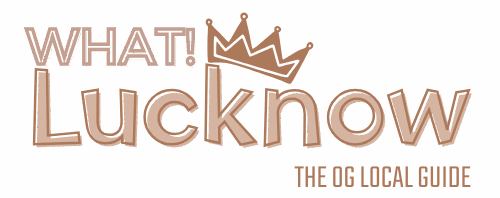Walk through the narrow lanes of Aminabad, and you’ll find yourself in the heart of old Lucknow’s shopping culture. This bustling marketplace has been the go-to spot for locals and tourists since 1920, when it was first established during British rule. The name comes from Begum Amina, the wife of Nawab Nasir-ud-din Haider.
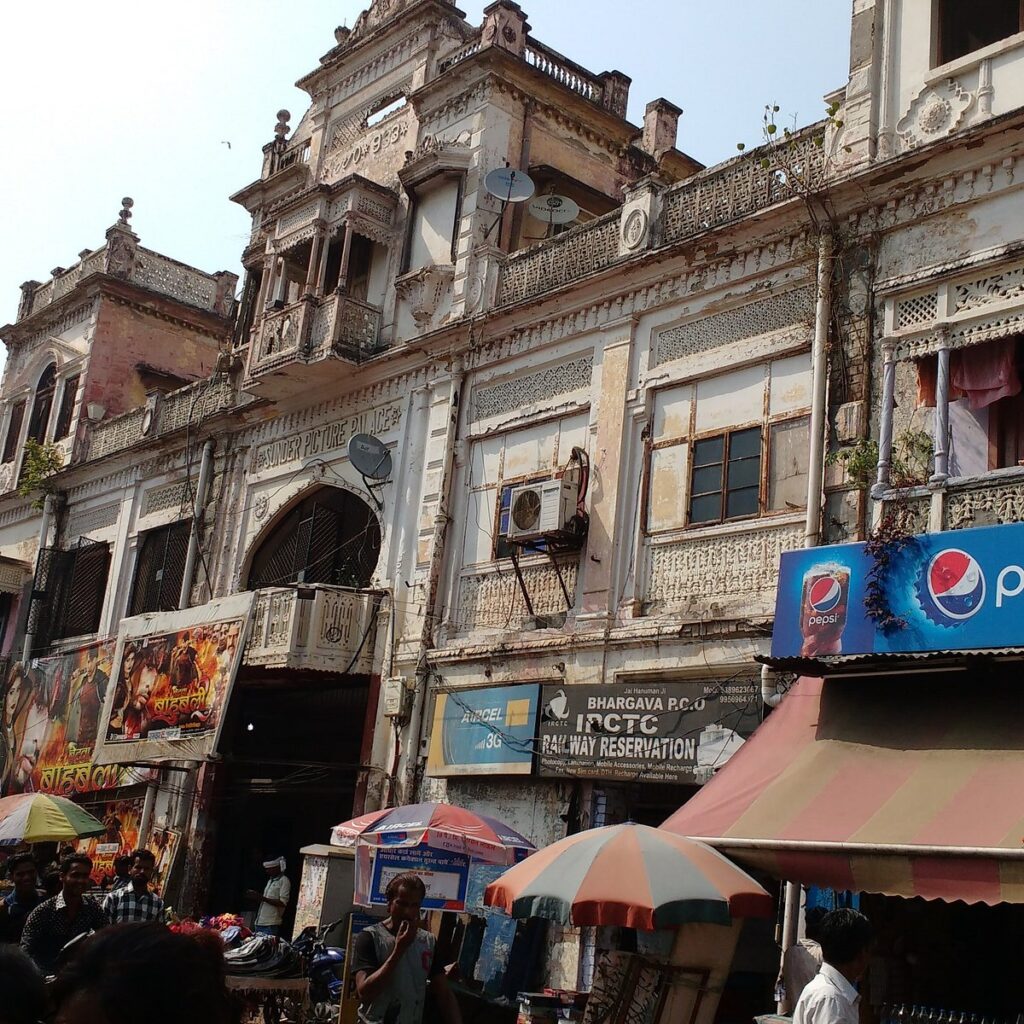
What Makes Aminabad Special?
The Aminabad market Lucknow sprawls across several interconnected streets, each with its own character and specialty. You’ll spot everything from tiny hole-in-the-wall shops to slightly bigger stores packed with merchandise. The crowd moves in waves—early mornings bring serious shoppers, afternoons slow down a bit, and evenings turn into pure chaos (the good kind).
Shopping Scene
Chikan Work Boutiques
Lucknow’s famous chikan embroidery finds its best representation here. Small shops line the streets with kurti sets, sarees, dupattas, and even men’s kurtas adorned with delicate threadwork. Prices start from ₹300 for basic pieces and can go up to thousands for heavily embroidered suits. Bargaining is practically mandatory—shopkeepers expect it.
Jewelry Stores
Imitation jewelry shops cluster around certain lanes, displaying everything from traditional jhumkas to modern statement pieces. You’ll get lost in the variety of oxidized silver, kundan work, and colorful meenakari designs. Bridal shopping often brings families here because the prices beat most upscale stores.
Fabric and Textile Shops
Rolls of cloth stacked floor to ceiling—that’s the fabric section of Aminabad. Cotton, georgette, silk, net, whatever you need for stitching clothes sits waiting. Many people buy material here and get it stitched by local tailors. The per-meter rates make it budget-friendly for bulk purchases.
Perfume Dealers
Attar shops sell concentrated fragrances in tiny bottles. The scent of rose, jasmine, and musk wafts through certain corners. Shop owners let you sample dozens before buying. These alcohol-free perfumes last surprisingly long and cost less than commercial brands.
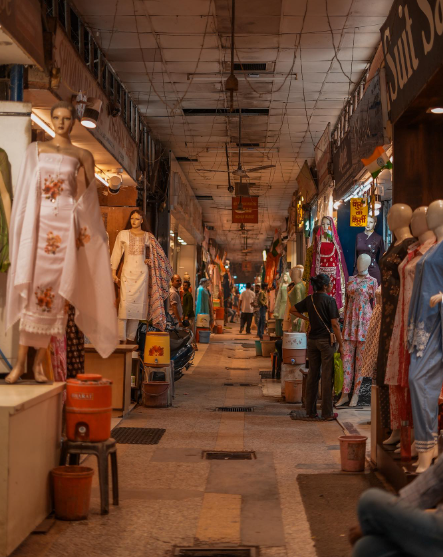
Footwear Stalls
From traditional mojris to casual sandals, shoe shops occupy entire stretches. Leather juttis with colorful embroidery make popular souvenirs. You can grab comfortable everyday footwear for ₹200-300 or fancier pieces for special occasions.
Household Items and Utilities
Plastic containers, kitchen tools, bed sheets, curtains, cushion covers—the list goes on. These shops stock practical stuff that every home needs. Prices stay competitive, and you can furnish an entire room without breaking the bank.
Cosmetics and Accessories
Lipsticks, nail polish, hair clips, makeup brushes, bangles—small stores pack all these items in cramped spaces. Brands range from local to international dupes. Girls often come here before weddings to stock up on makeup and accessories for mehendi and sangeet functions.
Shopping With ₹500
Let’s talk real numbers. What can ₹500 actually get you in Aminabad?
- A decent chikankari kurti with basic embroidery
- Two pairs of jhumkas plus a necklace set
- Three meters of good cotton fabric
- Two bottles of quality attar
- A pair of embroidered mojris
- Five to six hair accessories, bangles, and makeup items combined
- Two trendy tops from the ready-made clothing section
- Enough street food to satisfy three people
Mix and match based on what you need. The trick lies in bargaining smartly and comparing prices across shops before committing to a purchase.
Food Situation
Aminabad isn’t just about shopping—the food scene deserves equal attention.
Tunday Kababi has been serving its secret-recipe galouti kababs since 1905. Each kabab contains over 160 spices, though the exact recipe stays a closely guarded family secret. The place stays packed from opening till closing, with people standing in clusters waiting for their turn. Two kababs with parathas will set you back around ₹150-200, and it’s worth every rupee.
Idris Biryani remains another famous spot. This tiny eatery serves incredibly tender mutton biryani where the meat literally falls off the bone. The spices hit just right without being overwhelming. Expect long lines during lunch hours.
Rattilal’s Lassi serves thick, creamy lassi that feels more like a meal than a drink. The shop has been around forever, and the recipe hasn’t changed. They pour it into kulhads (clay cups) that add an earthy flavor.
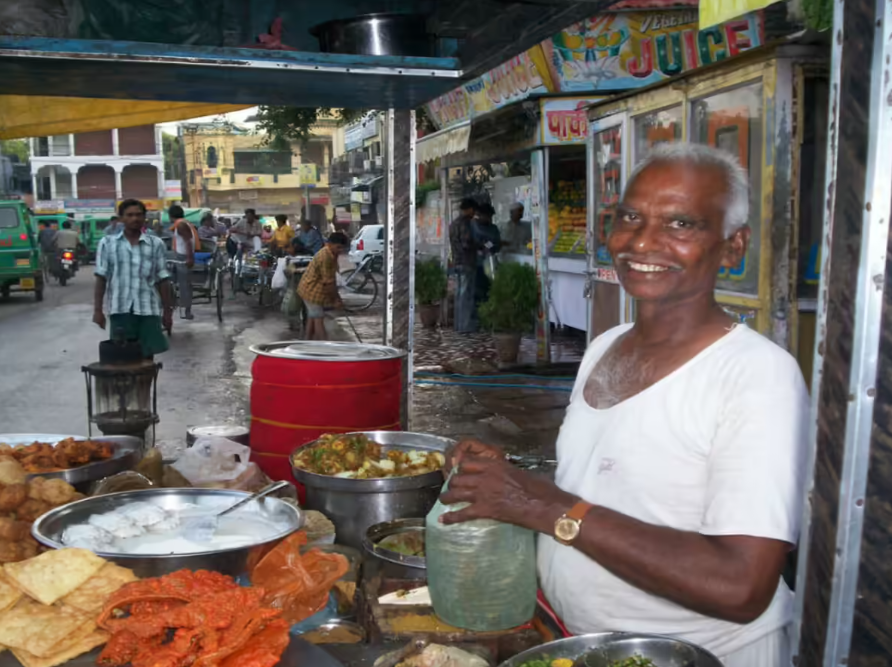
Prakash Ki Kulfi offers the richest kulfis you’ll taste. Malai, pista, kesar—each flavor tastes natural, not artificial. The texture stays creamy even in summer heat.
Street vendors sell golgappas, samosas, and chaat at every corner. The pani puri here packs a punch with tamarind and mint water that’s perfectly balanced between sweet, tangy, and spicy. Samosas stay hot throughout the day, and the potato filling has just the right amount of masala.
Some shops sell bakarkhani—a thick, crispy bread that locals dip in tea. Kebab stalls set up in the evenings, grilling seekh kababs and tikkas that fill the air with smoky aromas.
Getting Around
The market gets incredibly crowded, especially on weekends and during festival seasons. Lanes become so packed that moving forward feels like swimming through a sea of people. Cars can’t enter most areas, so plan to walk a lot. Wear comfortable shoes.
Auto-rickshaws drop you at the main entrance. From there, you navigate on foot. The layout seems confusing at first, but stick to the main lanes and you’ll figure it out. Shopkeepers give directions if you ask—most speak Hindi and basic English.
Best Time to Visit
Mornings between 10 AM and 12 PM offer the best shopping experience. Shops are open, crowds haven’t peaked yet, and you can browse without getting pushed around. Post-4 PM gets chaotic. Thursdays see fewer visitors since some shops remain closed.
Avoid festival eves like Eid, Diwali, and Holi unless you enjoy extreme crowds. Those days turn into absolute madness with shoulder-to-shoulder movement only.
Things to Keep in Mind
Cash works better than cards. Many small shops don’t accept digital payments. ATMs stand nearby, but they run out of cash during peak shopping days.
Bargaining skills matter a lot here. Start by offering 40-50% of the quoted price and negotiate upward. Don’t feel bad about walking away—shopkeepers often call you back with better rates.
Quality varies wildly. Check stitching on clothes, clasps on jewelry, and soles on shoes before buying. Returns are nearly impossible, so inspect everything carefully.
Keep valuables secure. Pickpockets work the crowd during rush hours. Bags with zippers work better than open totes.
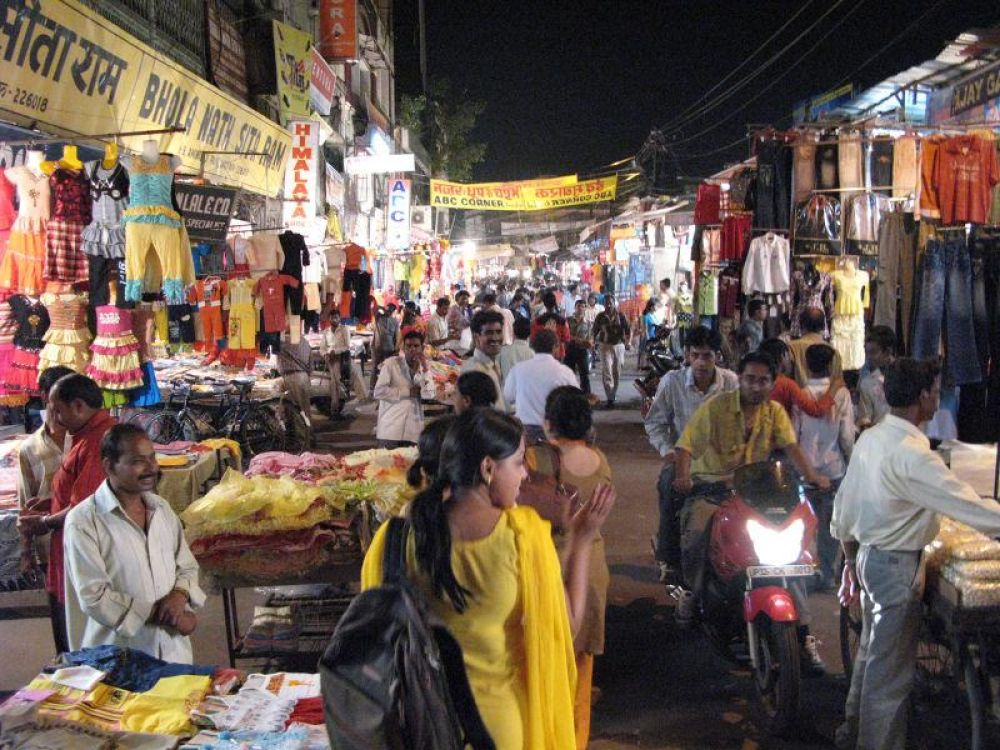
FAQs
Can I park my car near Aminabad?
Parking spaces exist on the outer roads, but they fill up quickly. Most people prefer auto-rickshaws or bikes since navigating narrow market lanes by car is impossible.
Do shops stay open on Sundays?
Yes, most shops operate seven days a week. Some close on Thursday instead. Festival days might have different timings.
Are clothes available in plus sizes?
Ready-made sections have limited plus-size options. Better to buy fabric and get clothes custom-stitched. Many shops provide tailoring contacts.
How much should I bargain?
Expect to pay 60-70% of the initial asking price after bargaining. Quoted ₹1000? Settle around ₹600-700. Fabric and jewelry have more negotiation room than footwear.
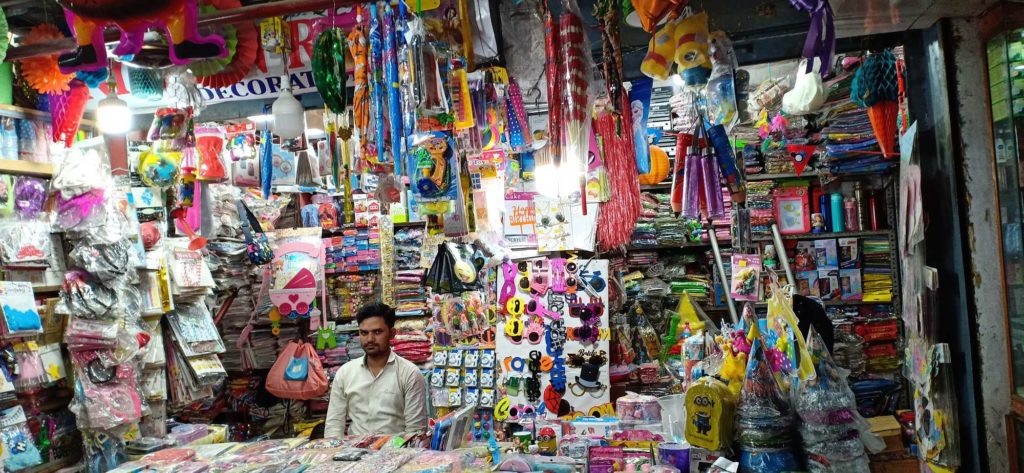
Is Aminabad safe for solo women shoppers?
Generally safe during daylight hours, but crowds can get uncomfortable. Go with friends if possible. Stay alert about belongings and personal space.
Where can I find authentic chikankari?
Shops along Nazirabad Road and inside the main market stock genuine pieces. Look for neat threadwork and quality fabric. Ask shopkeepers to show you the difference between machine and hand embroidery.
What about restaurants for sit-down meals?
Most famous eateries are small takeaway spots. A few restaurants exist on the main roads surrounding the market. For proper dining, head to nearby Hazratganj after shopping.
Can I get wedding shopping done entirely from Aminabad?
Absolutely. Many people source bridal outfits, jewelry, accessories, and even decoration items from here. Budget weddings particularly benefit from Aminabad’s pricing.
Should I try Tunday Kababi even if I’m a vegetarian?
Tunday specializes in non-vegetarian items, but Aminabad has plenty of vegetarian street food options. The chaat, golgappas, and lassi are all vegetarian and equally delicious.
The Aminabad Experience
What makes people return to Aminabad despite the chaos? Maybe it’s the thrill of finding that perfect chikan kurti at an unbeatable price. Or discovering a hidden shop that stocks exactly what you wanted. The energy feels infectious—vendors calling out deals, shoppers haggling with determination, colors spilling out from every storefront.
This market doesn’t pretend to be polished or modern. It stays authentic to its roots, offering genuine Lucknowi products at prices that make sense. You leave with shopping bags full and wallet not completely empty.
